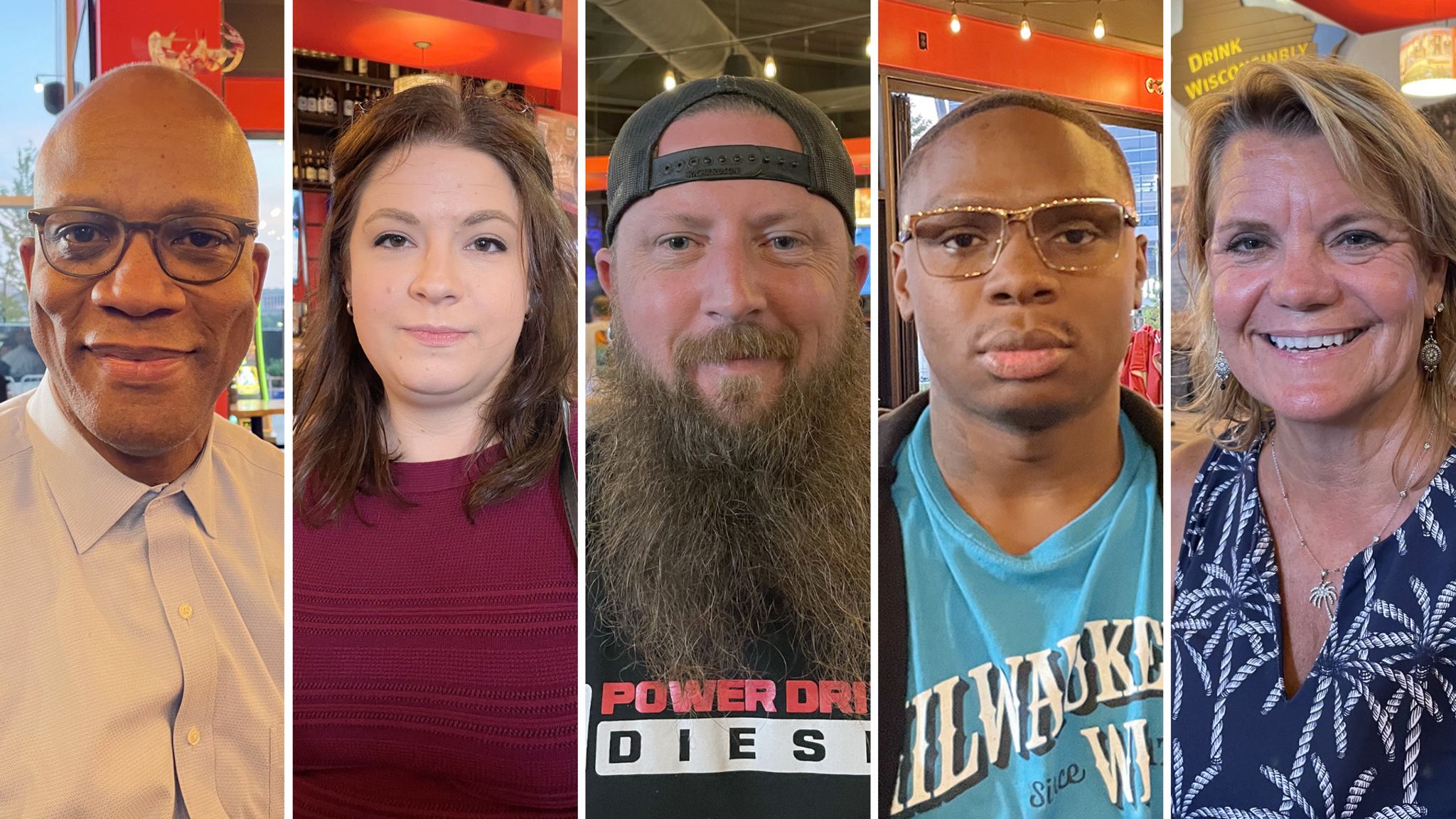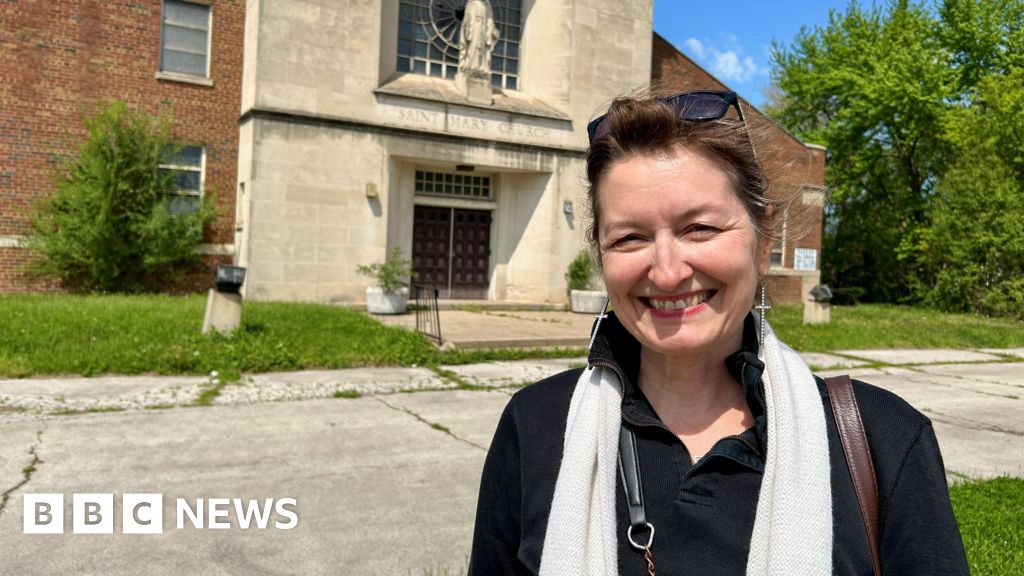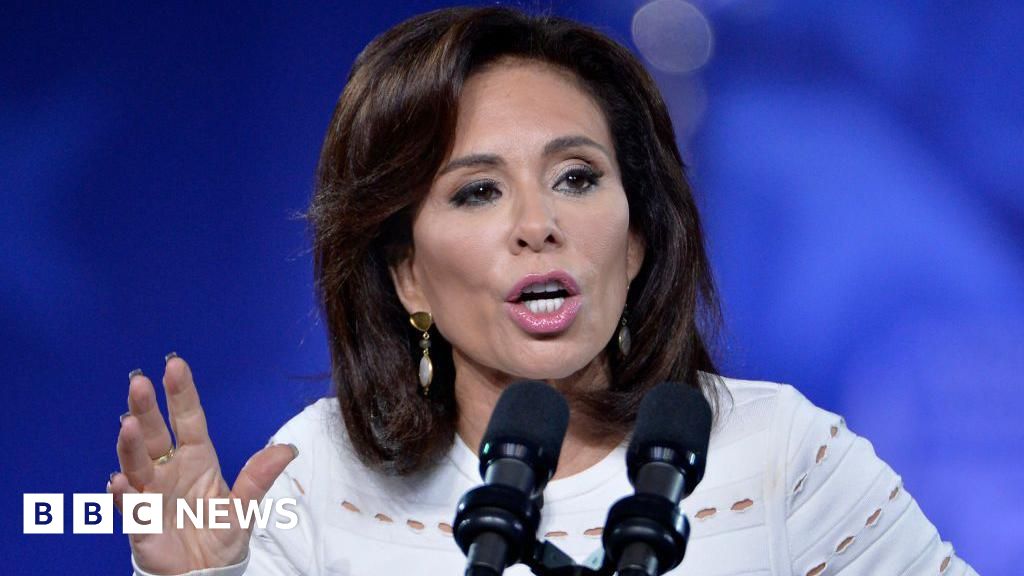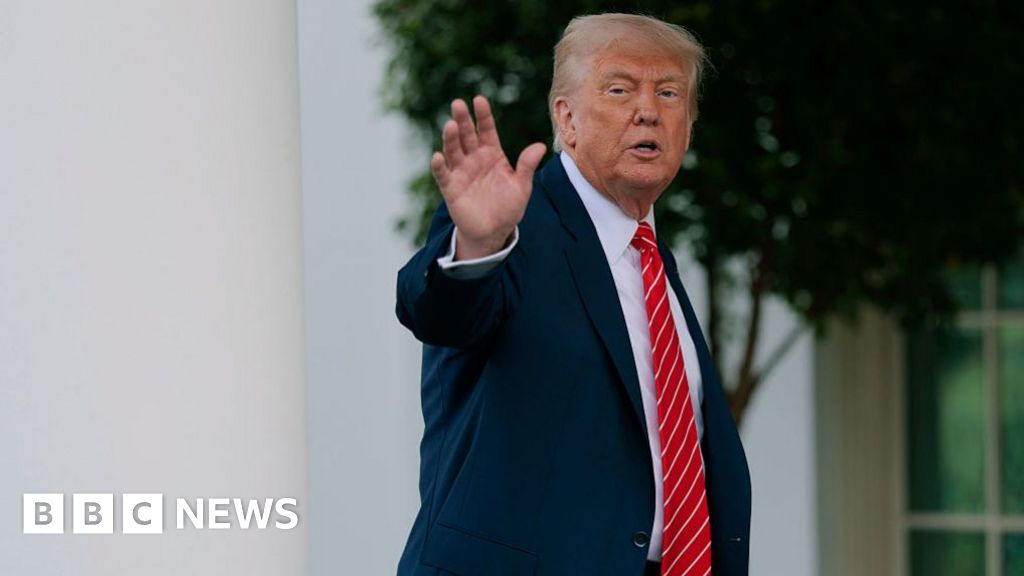ARTICLE AD BOX

By Marianna Spring
BBC Disinformation and Social Media correspondent
How is social media affecting what Americans think about their presidential candidates and next year's election? Ahead of the first Republican debate in Wisconsin, a diverse panel of voters explain what they're seeing online and how it informs their views.
I'm at a bar in the Wisconsin city of Milwaukee, known for its cheese curds and beer, ahead of a key date in the election calendar. On Wednesday, it is set to host the first debate between Republicans hoping to be the party's nominee in 2024.
I'm here because I want to better understand how social media is shaping next year's election, so I'm meeting a group of voters with a range of different political views and experiences. Many of them rely on social media to keep up to date with the election.
For the past year, I've been running an experiment for the Americast podcast to see what different US voters are recommended and exposed to on social media.
But now I want to understand more about how this kind of content could be impacting real voters' opinions on Donald Trump, Joe Biden and the election process.
'Too much Trump'
Memes of former president Donald Trump are inescapable, my panel of voters all agree.
Sometimes he is dressed like a superhero or there are computer generated pictures of him in orange jail scrubs following his indictments.
These images are funny, says Andrew who doesn't feel represented by mainstream political figures any more and uses social media as his main source of news.
Well it's funny to a degree, he adds. There are times when he realises that politics is actually serious, these people are in charge and he's losing trust in them.
Image source, Getty Images
The memes seem to have solidified in his mind the image of Trump as someone who's a winner. But, like several of the other voters on my panel, the over-saturation of Trump-related content is turning him off the former president.
"Everybody cares about [Donald] Trump and [President] Biden. They don't care about anything else in this country. It's like 'which one of these two is more screwed up?'"
Ken agrees. He's a professor of justice and public policy at Concordia University Wisconsin, as well as a retired Milwaukee police lieutenant. He's tired of the constant battle on social media and the way memes on all sides pit candidates against each other.
"I think Trump is both [a hero and a villain]. I think he's done some good things and some bad things."
"I'm seeing the same vitriol on both sides and for the first time in my life, I'm tired of politics".
The Sleepy Joe imagery cuts through
Posts about the current president, who is running again, also come up a lot.
Videos frequently comment on President Joe Biden's age and show examples of where he's lost his footing or slurred his words.
He's branded as Sleepy Joe, a nickname Trump has given him. That image has really cut through with all of the panel. They all say they've seen this kind of content and their main criticism of Biden is his age.
The memes are a little exaggerated but there's some truth to them, says Mary, who is originally from Wisconsin but now lives in Florida in retirement.
"I mean, Joe Biden is old and sleepy. He hasn't done a lot of positive things for the country. He needs to move on. And Donald Trump did some great things for the country when he was president. But Donald Trump has probably had his time as well."
Other posts describe Biden as "Dark Brandon", depicting him with bright red eyes and like an evil mastermind.
But there are positive images as well, presenting him as competent and on top of the economy, often with bar charts and animations.
Amanda, who was born and raised in Milwaukee, is more aligned to the Democrats and tends to see good things about Biden on her feed.
"I think he is old and slow. But I think he's doing the best he can, given his age."
What are the Undercover Voters?
- I created five profiles a year ago to track what US voters are recommended and exposed to online.
- My five voters were created to represent views from across the US political spectrum, based on data gathered by the Pew Research Centre. I gave each of them a profile on Instagram, Facebook, TikTok, YouTube and Twitter, with names and computer-generated photos.
- Their accounts are all private - and they don't comment or talk to anyone real. They just like, follow and join groups, pages and accounts as per their interests and recommendations.
- It's been really interesting to see the kinds of content that is pushed to different people. But you don't get a sense of how exhausting that can be until you meet real voters like my panel in Milwaukee.
'Maybe the election WAS rigged'
Mr Trump has been charged by prosecutors in Washington and in Georgia with trying to subvert the results of the 2020 election, which he lost to Joe Biden.
Most of the panel in Milwaukee condemned posts they had seen that falsely suggested the election was stolen from Mr Trump. They described him as a "sore loser".
But Andrew is not so sure. The content he's seen online suggesting the election is rigged appears to have undermined his faith in democracy.
"There's a lot of distrust in government," he says. "Maybe Trump is a sore loser. Maybe we [Republicans] lost. Maybe they cheated and maybe he didn't. How am I suppose to tell?"
Voters in Milwaukee speak to the BBC
Despite being unsure if the election was rigged he still plans to vote in the next one but fears his vote may just "go in the trash".
But Ken, the retired police officer, pushes back.
"I think there needs to be more transparency, right? I've worked polls, I've been a chief poll inspector for Milwaukee during an election."
If people like Andrew understood more about how the process worked, says Ken, maybe they would be able to trust the process.
The common ground
They all appreciate having a positive conversation in person free from the polarisation they encounter online.
"I don't think people are nearly as divided as they make it seem like," says Andrew. "I feel like at the end of the day, the five of us would all kind of agree on something similar."
Amanda says she finds it really hard to even post about politics anymore.
"Sometimes I'll post one thing and then all of a sudden I get a lot of hate and I'm like, Okay, I wasn't trying to have an argument."
That division, in Ken's mind, can be blamed on social media and its algorithms, which reinforce opinions on both sides.
"I wish we spent more time getting to know people different from us here in Wisconsin than bothering with who the next president is going to be."
For more about the Undercover Voters and the Republican debate, listen to Americast on BBC Sounds or wherever you get your podcasts

 1 year ago
42
1 year ago
42








 English (US) ·
English (US) ·